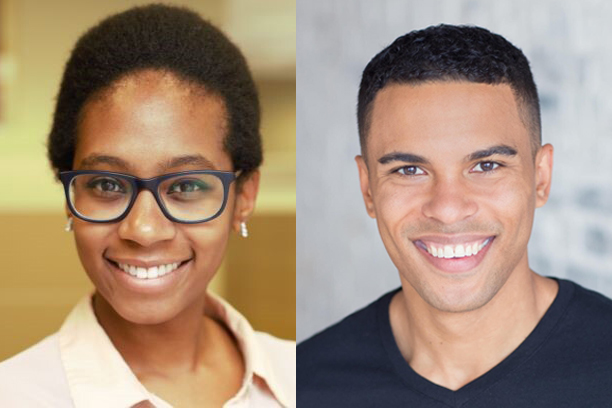Two University of Minnesota alumni are working to diversify the sustainable energy industry and push policymakers to consider the people who will be impacted by their policies.
Working at local independent policy nonprofit Fresh Energy, part of Ben Passer and Janiece Watts’ work is shaping energy policy at the state legislature and the Public Utilities Commission. The two engage with city officials and community partners and are part of a larger movement to retire coal-fired energy and center environmental justice.
Passer, the director of energy access and equity at the nonprofit, said that, historically, the energy industry has not considered low-income people and communities of color, who are often the ones disproportionately impacted by air pollution and less likely to have access to energy-efficient homes.
Mainstream energy and environmental work has been largely focused on macro-level ideas of reducing carbon emissions or large-scale environmental conservation rather than addressing more micro-scale impacts on people who will be affected by green energy policies, he said.
“It’s not actively thinking about who are the communities that are being benefited [or] who is being harmed? How are we making sure that households that are struggling to pay their energy bills are being benefited?” Passer said.
The sustainability and energy policy field has also been almost exclusively spearheaded by those who are white and affluent, despite many communities of color leading grassroot environmental justice efforts for decades, said Watts, the senior policy associate for Fresh Energy’s energy access and equity program.
Part of Watts’ work at Fresh Energy is engaging and building relationships with city officials, community stakeholders and environmental justice advocates around the Twin Cities.
“We have to be very conscious about the decisions that we’re making and who is making decisions,” she said. “For far too long environmental policy issues and experimental decision-making has been left to people who are not going to see and feel those consequences.”
One of the projects she is working on now is looking into how sustainable energy can be a tool of recovery, especially for buildings that were damaged or need to be rebuilt following the riots after the police killing of George Floyd. Both Passer and Watts are also working on projects related to the pandemic and how utility companies are responding to the needs of their tenants.
In the transition from monopolized fossil fuel industries to clean energy, thinking about equity is incredibly important, said Gabe Chan, an assistant professor at the Humphrey School of Public Affairs, who works in sustainable development and energy.
“If we think about clean energy as, let’s say, rooftop solar panels, well, who really benefits from that? It’s people who own their houses and people who can afford the upfront capital. And that is predominantly for white households who can benefit from that,” he said.
It is not enough to simply lower emissions across the board because some will not be able to afford or have access to energy-efficient options, according to Chan.
Passer said addressing climate change and issues of equity, inclusion and justice are some of the biggest existential crises of our time.
He said, “We have to address them together, and we have to address them both seriously because our future depends on it.”









Kevin Lawless
Nov 14, 2020 at 3:27 pm
Well deserved for both of you!